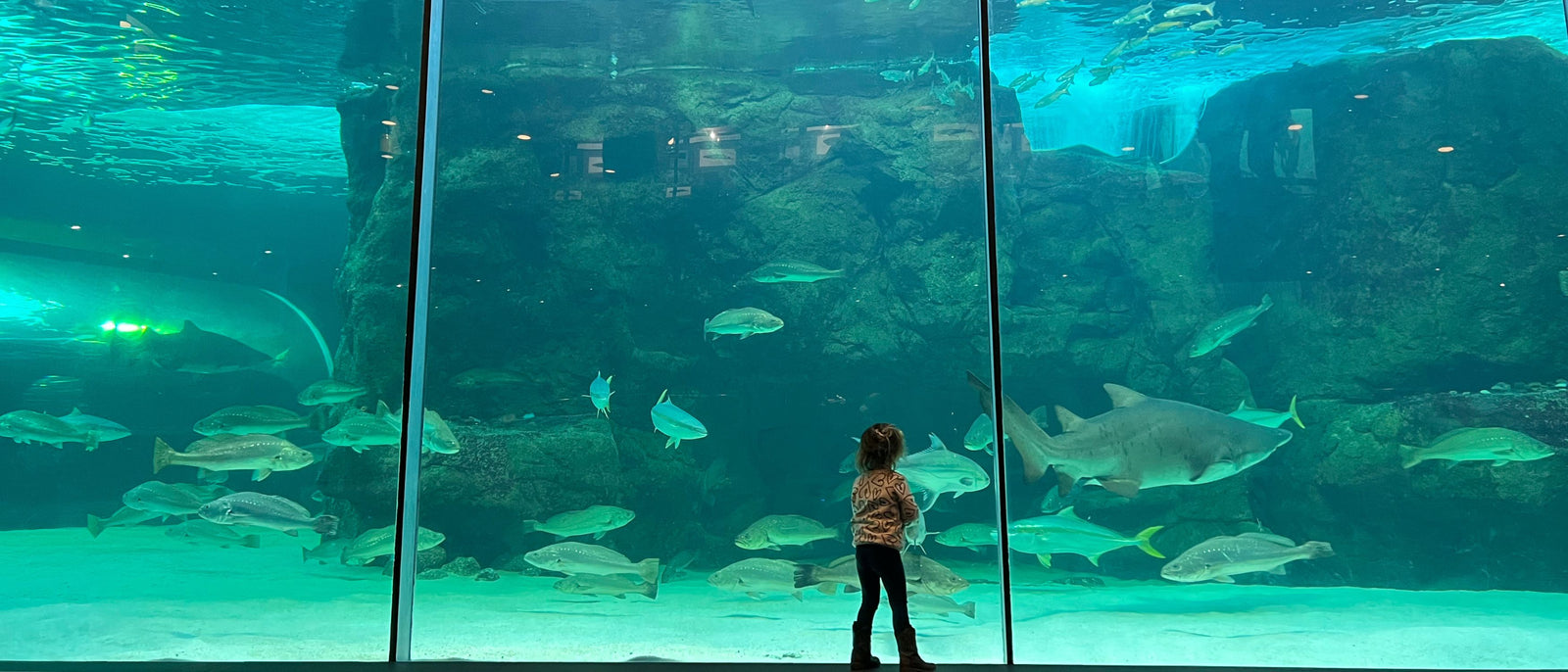When we think of aquariums, we often picture brightly coloured fish, massive tanks, and stunning underwater displays. But behind the scenes, the ethical debate surrounding aquariums grows as people become more conscious about animal welfare and the environment. So, are aquariums ethical? The answer isn’t black and white. However, there is an increasing shift towards conservation, education, and rehabilitation that’s changing the role of aquariums.
The Evolution of Aquariums
Historically, many aquariums were seen as mere entertainment venues, with a focus on showcasing exotic marine life for visitors. Today, that’s changing. Many leading aquariums are transforming into centres of education, research, and wildlife rehabilitation. One such place is Cape Town’s very own Two Oceans Aquarium.
This renowned aquarium not only educates the public on marine biodiversity but actively contributes to rehabilitation and conservation efforts. Their Sea Turtle Rehabilitation and Release program has been highly successful, nursing injured turtles back to health and releasing them back into the wild. This shift is becoming a common trend among ethical aquariums worldwide.
Aquariums Leading the Way in Conservation
Some aquariums go beyond the standard exhibits. They participate in research projects, support endangered species, and provide sanctuary for marine life that can’t survive in the wild. Let’s look at some leading examples of aquariums that are ethical and actively contribute to marine conservation:
- Two Oceans Aquarium (South Africa): They rescue, rehabilitate, and release stranded marine animals, especially sea turtles. Their educational programs aim to instil a sense of responsibility in the next generation of ocean custodians.
- Monterey Bay Aquarium (USA): Known for its Sea Otter Program, which rehabilitates injured otters and works to increase their population. Monterey Bay also supports research on sustainable fishing practices.
- Vancouver Aquarium (Canada): After banning the display of cetaceans, they’ve shifted focus to rehabilitation, especially for injured harbour seals and sea lions. Their marine mammal rescue program is one of the largest in the world.
These institutions provide a glimpse into how aquariums are working to ensure the marine animals in their care are treated ethically and released when possible.
Ethical Considerations
While the positive impact of aquariums is clear, some concerns remain. The key ethical question revolves around captivity—should marine animals be kept in tanks at all? Marine creatures, especially large ones like sharks and cetaceans, require vast, dynamic environments that are hard to replicate in captivity.
Aquariums that engage in rehabilitation and education often face this dilemma. They argue that some animals can't survive in the wild due to injury or other factors, and therefore, captivity becomes a necessary sanctuary. But how do you balance this with the need for ethical treatment?
The Importance of Rehabilitation and Release
Rehabilitation programs are where ethical aquariums shine. By focusing on rescue, rehabilitation, and release, they contribute significantly to marine conservation. The goal isn't just to heal injured animals but to give them a second chance at life in the wild. These programs are becoming the gold standard for responsible aquariums.
For example, the Two Oceans Aquarium has an excellent track record of releasing rehabilitated animals. They've even established partnerships with local conservation organisations to increase the scope and success of their efforts.
The Future of Ethical Aquariums
The future of aquariums lies in their ability to evolve into conservation and education hubs. As public awareness grows, so does the demand for ethical treatment of marine life. Ethical aquariums will continue to focus on rehabilitation, sustainability, and conservation rather than simply being showcases of marine life. This approach ensures that aquariums have a positive impact on the animals they care for and the people they educate.
So, are aquariums ethical? The answer depends on their actions. If they focus on rehabilitation, education, and conservation, the answer is increasingly yes.
Aquariums are evolving from entertainment venues into essential conservation hubs. With institutions like Two Oceans Aquarium, Monterey Bay Aquarium, and Vancouver Aquarium leading the way, we see a positive shift. These organisations are doing much more than showcasing marine life—they are actively rehabilitating and releasing animals, ensuring a brighter future for our oceans. If you’re thinking of visiting an aquarium, choose one that prioritises ethical practices, conservation, and rehabilitation. The ocean will thank you!

